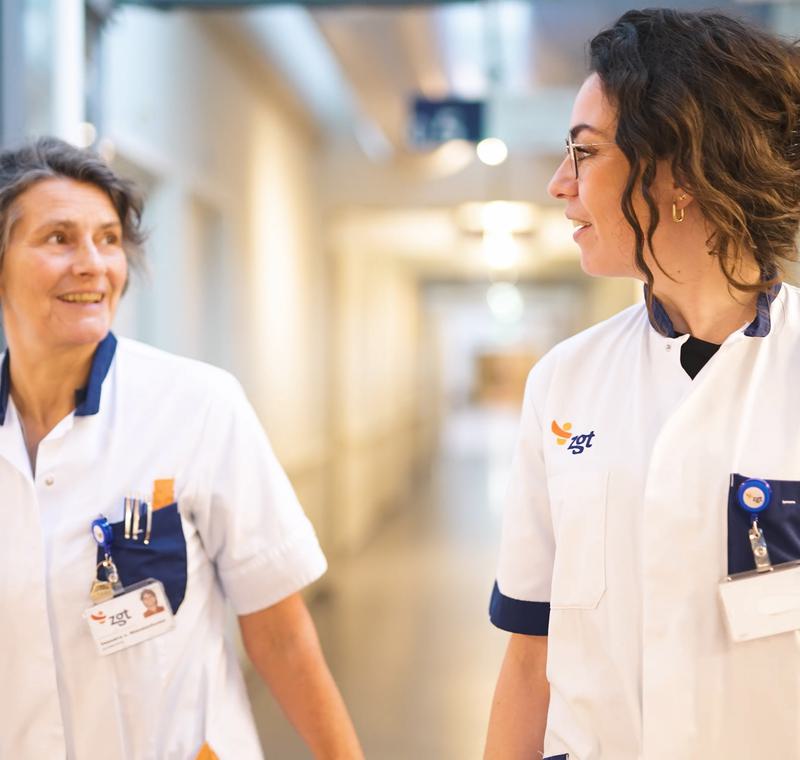Reggeborgh Research Fellow Jaimy Simmering wants to contribute to improving pelvic floor care and break taboos
Constantly wondering where the nearest toilet is, no longer daring to wear white trousers or even not daring to go out at all: it is the daily reality for people with unwanted urine and stool loss. It is one of the driving forces behind Reggeborgh Research Fellow Jaimy Simmering's commitment to innovative research for women with these pelvic floor problems. In fact, about 40 per cent of women over 40 suffer from prolapse of the pelvic floor organs or muscles. In addition, 1 in 10 women experience unwanted loss of stools at some point. These problems are not only physically demanding, but can also cause emotional stress and social isolation.

Improving care
Jaimy Simmering is a technical physician attached to the Reggeborgh Research Fellowship, working in the Gynaecology Department at ZGT. The Reggeborgh Research Fellowship gives her the opportunity to spend three years researching new ways to improve care for women with pelvic floor problems.
Making better choices in prolapse surgery
One of Jaimy's projects focuses on developing a prediction model. This model will help women and doctors to choose the most appropriate surgery for prolapse. This reduces the chance of recurrence and often eliminates the need for a second operation.
Jaimy uses advanced techniques such as ultrasound and a standing MRI scan, of which there is currently only one in the Netherlands, namely at the University of Twente's TechMed centre. Standing MRI scans give a better image than lying scans, as the pelvis is visible in a natural position. ‘With these scans, we can see exactly how the pelvic floor works and where the problems are,’ Jaimy explains. This helps in making better decisions for treatment.


Device for sphincter repair
Another project Jaimy is working on is about a device that measures the function of the anal sphincter with ultrasound. This device is of great interest to women who have suffered a severe tear during childbirth.
The device maps how well the sphincter has recovered. This helps doctors decide whether a woman can give birth vaginally again in the next delivery or whether a caesarean section is a better option. Jaimy hopes that in the long run, this research will help reduce the number of women who suffer from stool loss.


Reggeborgh Research Fellowship
The Reggeborgh Research Fellowship offers Jaimy the opportunity to work with a team of specialists, develop new techniques and develop personally.
Within this programme, Research Fellows are paired with a mentor from Reggeborgh. These mentors challenge the fellows to develop their personal development points and the mentors act as sparring partners on major issues, such as funding and demonstrating entrepreneurship.


‘I want women with pelvic floor problems to be able to live normally again without shame or restrictions. There is a huge taboo surrounding the loss of urine and stool. The shame and discomfort are enormous. Therefore, every small step to help patients and improve treatments is of great importance,’
- Jaimy Simmering
